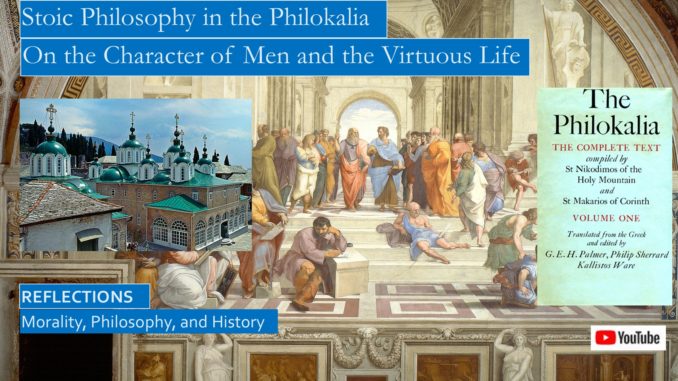
St Nikodimos, when he compiled the Philokalia, placed the work “On the Character of Men and the Virtuous Life” as the first chapter in the Philokalia, as it was credited to St Anthony, one of the first Fathers of the desert. The editors of the modern compilation of the Philokalia relegated this work to the Appendix, arguing that it was more stoic than Christian, noting that biblical references are wholly absent from this work, unlike the rest of the Philokalia, which are replete with quotes from the Scriptures.
Our YouTube video has introductory and other material not in this blog: https://youtu.be/rKVBhdHWHGI
We are quite fortunate that the current editors respected St Nikodimos to keep this work in the modern Philokalia, as it is indeed a treasure. The Philokalia does not strive for originality, and as you read the Philokalia the copying of later authors from the earlier authors is inescapable. This author, who probably was not St Anthony, indeed copied ideas and phrases from the stoic philosophers, likely he was a stoic philosopher who converted to Christianity. Should we be critical of this influence of stoic philosophy? What is better, the ancient Greek culture, saturated in the unselfishness of stoic philosophy, where self-discipline is the ideal, where we are bid to control our passions, or today’s modern culture, saturated in selfish psychobabble, where we are bid to give full rein to our uncontrollable passions, lest we burst out in neuroses, where nothing is our fault, where all our faults are blamed on our family, on our environment, on our neuroses, where we blame our sufferings on anything but our own lack of self-discipline?
The most puzzling objection of the editors is when the author says that another name for guardian angels is the personal daemon on the Greeks in paragraph 62. Socrates tells us of his personal daemon in the Phaedrus and other dialogues, the Socratic daemon never guides you in what you should do, but rather objects if you commit an act of great impiety towards God, which differs from the guardian angel who invisibly protects you from harm.
My objective is not to criticize the editors for their comments, but to caution the readers not to draw the wrong conclusion and avoid studying this treasure that opened the compilation of St Nikodimos. This work may not sound exactly like the other works in the first volume of the Philokalia, but it is not the work of a pagan stoic philosophers either. IMHO you can neither accept or reject this as either a Christian or stoic composition, it is really a combination, a combination that demonstrates how both stoic philosophy and Eastern Christianity grew together from the same Greek and Jewish soil, and how they borrowed freely from each other.
What is the sole objective of the truly intelligent man?
“To obey and to conform to the God of all,” disciplining his soul, thanking God,
“for the knowledge of God and faith in Him is the salvation and perfection of the soul.”(2)
“The greatest sickness of the soul, its ruin and perdition, is not to know God, who created all things for man and gave him the gifts of intellect and intelligence. Winged through these gifts, man is linked to God, knowing Him and praising Him.”(97)
The Philokalia teaches us to control the passions, seeking God’s help through his grace. “When a man reveres God with all his heart and with faith, he receives through God’s providence the power to control anger and desire; for it is desire and anger which are the cause of all evils.”(11)
“We have received from God self-control, forbearance, restraint, fortitude, patience, and the like, which are great and holy powers, helping us to resist the enemy’s attacks.”(3) “The four passions are self-esteem, levity, anger and cowardice.”(79)
We should search out our own faults and scrutinize our own way of life, to see if we are pleasing God. “What concern is it of ours if another man is wicked?”(86)
“The lax soul is turbid and perishes through wickedness, since it contains within itself profligacy, price, insatiate desire, anger, impetuosity, frenzy, murderousness, querulousness, jealousy, greed, rapacity, self-pity, lying, sensual pleasure, sloth, dejection, cowardice, morbidity, hatred, censoriousness, debility, delusion, ignorance, deceit and forgetfulness of God.”(8)
“Holiness, salvation and a crown of incorruption are given to the man who bears misfortunes cheerfully and with thankfulness. To control anger, the tongue, the belly and sensual pleasures is of the utmost benefit to the soul.”(155)
“The truly intelligent soul is not disturbed when she see the success of the wicked and the prosperity of the worthless.”(144)
What is our most precious possession? “A virtuous way of life, conforming to God’s will, surpasses all wealth. When you reflect on this and keep in your mind constantly, you will not grumble, whine or blame anyone, but will thank God for everything, seeing that those who rely on repute and riches are worse off than yourself.”(4) “The more frugal a man’s life, the happier he is, for he is not troubled by a host of cares.” We should seek the prosperity that fills our soul rather than our pocket, for chasing after new cars and castles and country clubs will only add to the cares of this world. Should we pray to God to fill our pockets, and should we complain to God when our pockets are not filled, complaining how our prayers are never answered? Should our prayers be a shopping list we hand to God? Thieves can steal our wealth, but never our virtue. Here the Philokalia teaches that we should never consider it a loss when we lose our children, our money, or our possessions, but be thankful for all the God has loaned to us for our use, realizing it could be taken away at any time.(36) This is also a frequent teaching of Epictetus and the other stoics, not to allow our misfortunes to turn us away from God and the Love of God and love of our neighbor.
The stoic Epictetus, who was the freed slave of a freed slave, would certain agree to this teaching of the Philokalia, “A Man is free if he is not a slave to sensual pleasures, but through good judgment and self-restraint masters the body and with true gratitude is satisfied with what God gives him, even though it is quite scanty.”(56) Do not seek wealth and riches, but instead seek virtue, seek the Love of God. Men who are not happy with what they have but “desire more, enslave themselves to passions that disturb the soul,” crying out, more, more more! “The desire for more than one needs does not allow one’s soul to struggle or to be saved.”(57) Whether you are a slave to your passions, or whether you are free and do not yield to your passions, this is your choice, “for God created you with free will, and he who overcomes the passions of the flesh is crowned with incorruption.”(67)
“All who come into this life, both those who live modestly, and those who enjoy wealth and ostentation, leave this life like an inn: each takes with him none of its pleasures and riches, but only his own past actions whether good or bad.”(80)
“To escape death is impossible. Knowing this, those who are truly intelligent and practiced in virtue and spiritual thought accept death without complaining, which fear or grief, for death is inevitable and delivers us from the evils of this life.”(82)
We see tension between contentment and justice: “We should not become angry with those who sin, even if what they do is criminal and deserves judgement.” Rather, for the sake of justice they ought to be corrected or even punished. “But we should not become angry or excited, for anger brings passion, anger impedes good judgement and justice. Moreover, we should not approve of those who show more mercy than is proper. The wicked must be punished for the sake of what is good or just, but not as a result of the personal passion of anger.”(69)
Both the stoics and the church fathers teach us that we should control our passions: “Intelligent people must ceaselessly remember that by enduring slight and passing suffering in this life, we gain the greatest joy and eternal bliss after death. Therefore, if a man falls when struggling against the passions and wishing to be crowned by God, he should not lose heart and remain fallen, despairing of himself, but should rise and being again the struggle to win his crown. Until his last breath he should rise whenever he has fallen; for bodily toil is a weapon used by the virtues, and brings salvation to the soul.”(76)
The Christian life center on the Love of God and the love for our neighbor: “Concentration on holiness of living, together with attentiveness to the soul, leads to goodness and the Love of God. For he who seeks God finds Him by overcoming all desires through persistence in prayer. Such a man does not fear demons.”(27) “Those who are truly men must endeavor to live with holiness and Love of God, so that their holy life shines before others.”(38) “The man who is good and enjoys the Love of God, and who truly knows Him, never ceases to do ungrudgingly all that accords with His will. Such mean are rare.”(40)
Our intellect is what separates man from the beasts, reason from passion, intelligence is what enables man to worship God and lead a selfless life. “Nothing is more precious to man than intelligence. Its power enables us to adore God through intelligent speech and thanksgiving. By contrast, when we use futile or slanderous speech we condemn our soul. An obtuse man blames his sins on the conditions of his birth or on something else, while his words and actions are evil through his own free choice.”(65)
Intellect that does not lead us to the Love of God is a gift from God wasted. “An intellect that enjoys the Love of God is a light that shines on the soul, just as the sun shines on the body.”(31) “There is no profit in studying doctrines unless the life of one’s soul is acceptable and conforms to God’s will. The cause of all evils is delusion, self-deception and ignorance of God.” “Just as the body is dead without the soul, so the soul without the intellect is inert and cannot receive God.”(131)
Living a godly life takes effort, takes study, takes learning, we must learn to use our intellect to study Scriptures and the Church Fathers to learn and internalize the good in our hearts. “The intelligent soul endeavors to free itself from error, delusion, boastfulness, deceit, from jealousy, rapacity and the like, which are works of the demons and of man’s evil intent. Everything is successfully achieved through persistent study and practice when one’s desire is not impelled towards base pleasures.”(22) “The soul is divinized through the intellect, but the nature of the body makes the soul grow slack.”(135)
Jesus warns us not to cast pearls before swine. “Do not try to teach people at large about devoutness and right living. I say this not because I begrudge them such teaching, but because you will appear ridiculous to the stupid.”(84)
Here the Philokalia teaches that we should not argue with our neighbor over the truth, over religious doctrine, and if someone want to argue with us we should refuse, lest our brutish tongue kills and petrifies our intellect. “As bad water ruins good wine, so harmful talk corrupts those who are virtuous in life and character.”(44,46)
Instead, when we gather together with other Christians, we should heed the exhortations in Hebrews, to always encourage one another. May we discuss our faith with patience and love. “The intellect responsive to God’s Love is an invisible blessing given by God to those whose life by its virtue commends itself to Him.” God grants men “intellect, understanding, spiritual knowledge, and the power to discern what is good, so that, realizing the harm that comes from evil, they may avoid it.”(168)[1]
[1] Anonymous Antony, “On the Character of Men and the Virtuous Life,” in the Philokalia, The Complete Text, compiled by St Nikodimos of the Holy Mountain and St Makarios of Corinth, Volume 1, translated and edited by GEH Palmer, Phillip Sherrard, and Kallistos Ware (London: Faber and Faber, 1979), pp 298-321.

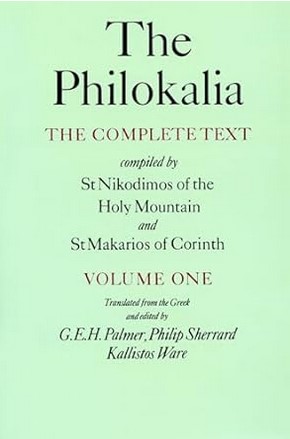
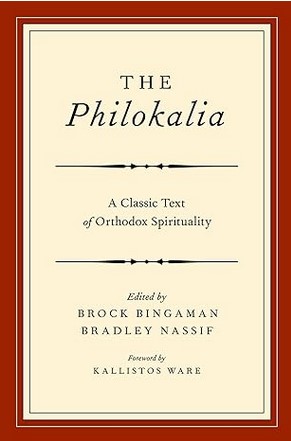

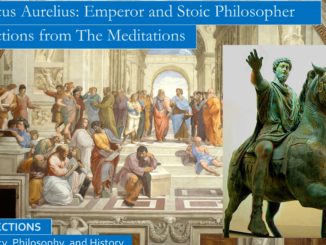
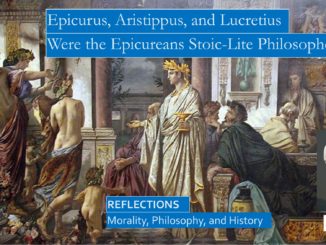
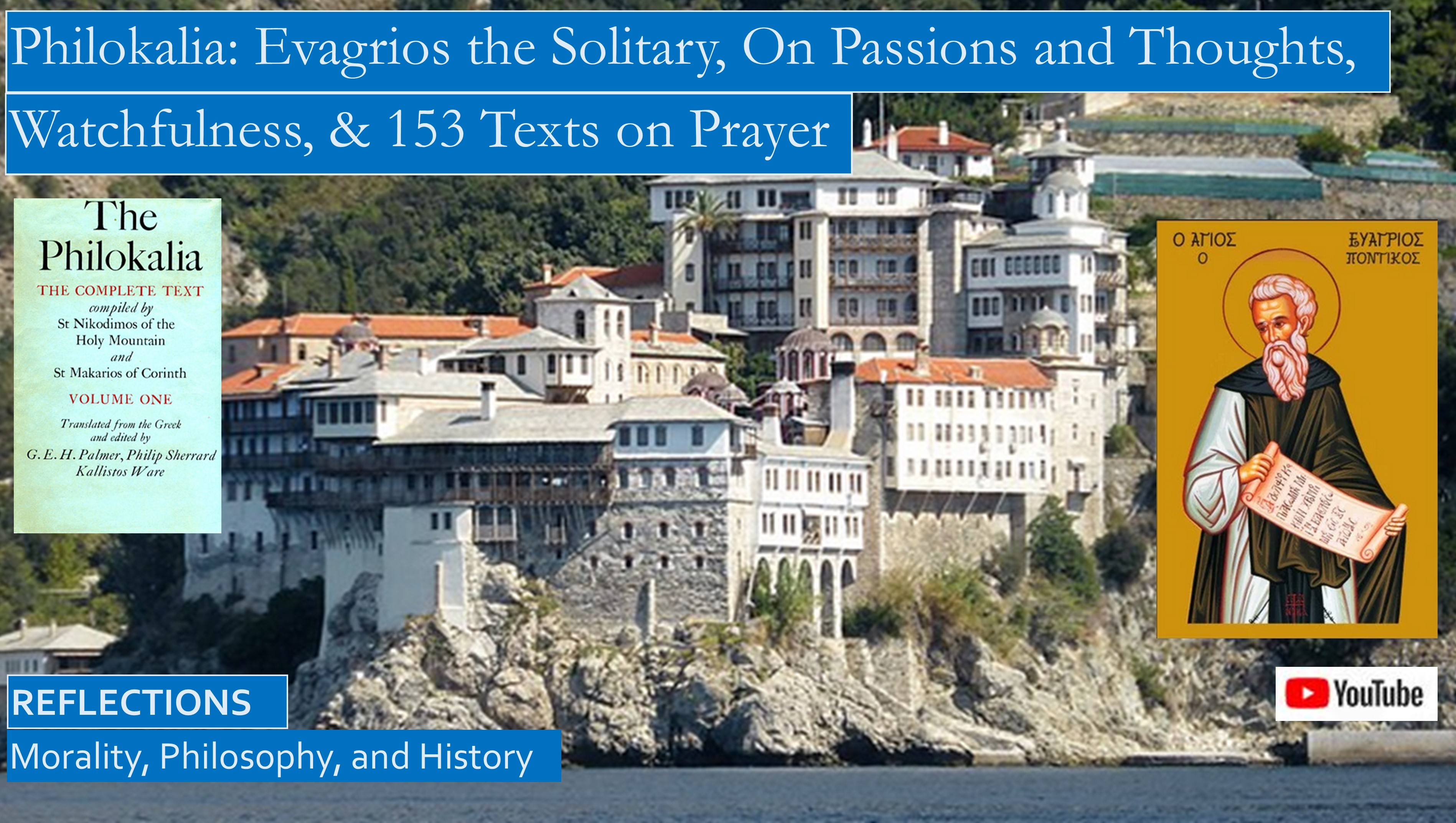
1 Trackback / Pingback